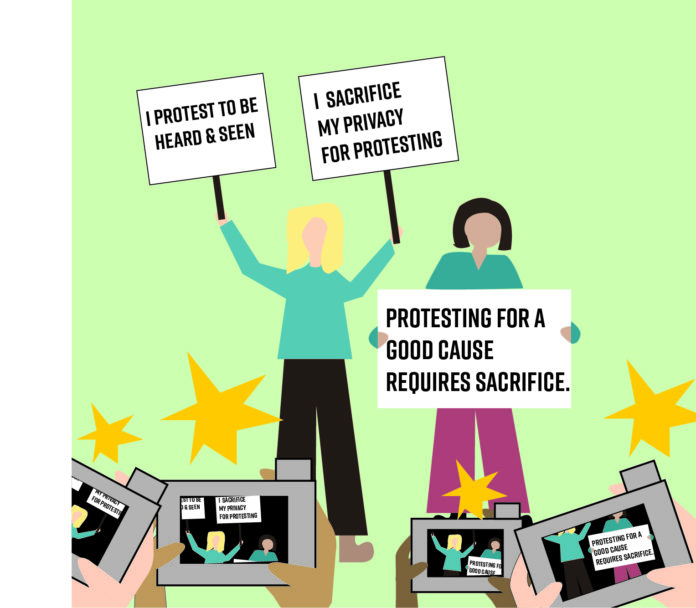Protests and public activism or demonstrations are newsworthy, and it is the job of journalists to report news to the public – to share what people are fighting for and the affect that may have.
When college journalists at Northwestern University covered protests on their campus earlier this month, the news staff received backlash from students for covering the event – especially for photographing protesters and using the college directory and social media to try and contact potential sources. Caving under the pressure from their fellow students, The Daily Northwestern took down and amended their news coverage (which the Lariat argues should not have happened in Monday’s editorial). Protesting students had no right to fight the newspaper for their coverage in the first place.
Northwestern students said the paper exposed their identity, putting them in danger of disciplinary action from the university. Yet the choice to engage in public protest, regardless of media coverage, places one in the spotlight. Isn’t the point of protests to be outspoken, advocate and fight publicly for the cause?
Journalists are arguably helping protesters by writing about and photographing their efforts. Part of the objective of public demonstrations is to raise awareness about the cause, start discussion and share the silenced side of the story. News describes and explains issues to the community. Journalism is form of communication just like these demonstrations.
Public demonstrations are newsworthy, so journalists, student or otherwise, will be there to cover it – especially if it’s on the same campus as where the newspaper is run. The student journalists at The Daily Northwestern owed that important, timely and accurate coverage of protests happening on campus to their readers. They shouldn’t have to apologize for doing their job. Protesters should have realized that those journalists were just doing their job.
Photographing demonstrations and public engagements, traumatic or not, is part of reporting the news. Protesters should be prepared for such coverage when engaging in newsworthy public causes.
If the concern is reliving trauma, look at war photography or photojournalism from Civil Rights protests and the Great Depression. The ethics of news coverage is a priority taught to journalists and firmly instilled in student journalists. Any journalist isn’t going on to photograph war or physical protests for sport or to create “drama porn” (as one student deemed The Daily Northwestern’s posted coverage of the protest) – it’s our job.
If the concern is feeling like one’s privacy is being invaded by being contacted directly by a journalist, remember where that journalist got the contact info – a public contact directory, such as a college directory, and a public social media account. Those things are a part of public record and public forum with no restrictions on being used as communication resources, and these are precisely the resources that journalists will use when trying to get in contact with potential sources – public record. If you don’t want your social media profile accessible publicly, make it private.
Student journalists are in the active process of learning about the trade. Pressuring student news staff to cater their reporting to their personal preferences insults the practice of journalism. Asking student journalists to abandon their professional training and judgement in order to please their peers sets a dangerous precedent for compromising journalistic values. These college experiences set a foundation for students in their future careers.
The press, in its purest and purposed form, exists in society as a source of truth that stands firm against bias caused by pressure, corruption or bribery. Journalism is tainted when select groups are given the power to cherry pick what is allowed to be published.
Advocacy is inherently public. Your face and your involvement as an activist and protester is already out there. Be proud of what you fight for if you’re going out to fight for it. Let journalists do their job in covering the story.
Don’t want to be on camera fighting publicly for something? Then don’t fight publicly for it. Don’t want the story shared? Then stay silent.
If you’re that scared of institutional retaliation, government or university, then rethink what you’re fighting publicly for. Don’t put yourself in the public light to begin with. There are plenty of other ways to silently and anonymously support a cause.
Think before you act, don’t try to censor news coverage after you act publicly and aren’t happy with how it looks.





